Roses, the quintessential prima donnas, need a delicate hand and considerable attention. Too much rain and fungal black spots will cover the leaves — in a bad year all the leaves may completely defoliate. Rose rosette, a viral disease, will cause witches’-broom, a tight cluster of deformed growth. Another viral disease, Rose Mosaic, will cause a mottled look to the foliage. For the plant, these diseases are cosmetic in nature, but are disastrous for the garden’s center stage. What prima donna would put up with such a threat to her beauty? And, don’t get me started on pests such as Japanese beetles, aphids, midges, thrips, mites and scale; or winter-kill which will destroy most of the shrub and sometimes the root.
Dealing with these thorny issues is much easier with the development of Knock Out® roses. Rosa radrazz is red and was the first to be developed. The Knock Out® Rose may not be the most beautiful, but it performs like no other. It is also one of the longest blooming, lowest maintenance and hardiest of all roses. It will produce a profusion of beautiful flowers in red, yellow, blush, pink hues, rainbow and even one with double blossoms — all summer long without deadheading!
Knock Out® roses are especially resistant to the diseases and afflictions mentioned above. They tolerate drought, and thrive in full sun in rich, moist, well-draining soils and are winter hardy (zones 5-9). They might die back in the severe winter to the ground level, but they come back vigorously.
This hybrid belongs to the Rosa genus. The Rosa genus is part of the Rosaceae family which originated in the Northern Hemisphere and was classified by Linnaeus in the 18th century. Within the Rosa genus, there are more than 200 species of roses. William Radler, a Wisconsin breeder, developed this hybrid rose in 1989 by crossing two tea rose varieties: Carefree Beauty and Razzle Dazzle. “Radrazz” is the name he selected. It won an “All American Award and was soon on the market. The Knock Out® rose is considered one of the best and fastest-selling rose varieties to date.
Believe it or not, maintenance is pretty much optional and makes these roses perfect for a busy lifestyle. If you have a little time and want more blossoms, a periodic deadheading will do the trick. Simply cut the spent flower off below the hip. If you’d like a little color in your winter garden, leave the last blooms to form colorful hips. In the spring, pruning the shrub back by a third and removing any dead limbs will give you a better, more compact shape. You can add a little fertilizer (be sure to water after fertilizing) if you want. That’s all!
So if you love beautiful roses you can replace the fragile temperamental prima donna in your garden by recasting our independent, fresh ingénue, Ms. Radrazz, the Knock Out® Rose. She may not be quite as stunning or have the fragrance of her older, more regal cousins, but for much less hassle she will put on a quite a show and be back for encores!
Photo credits: Feature photo and bud: Wikicommons. All other photos courtesy of Linda Rinehart Baker.

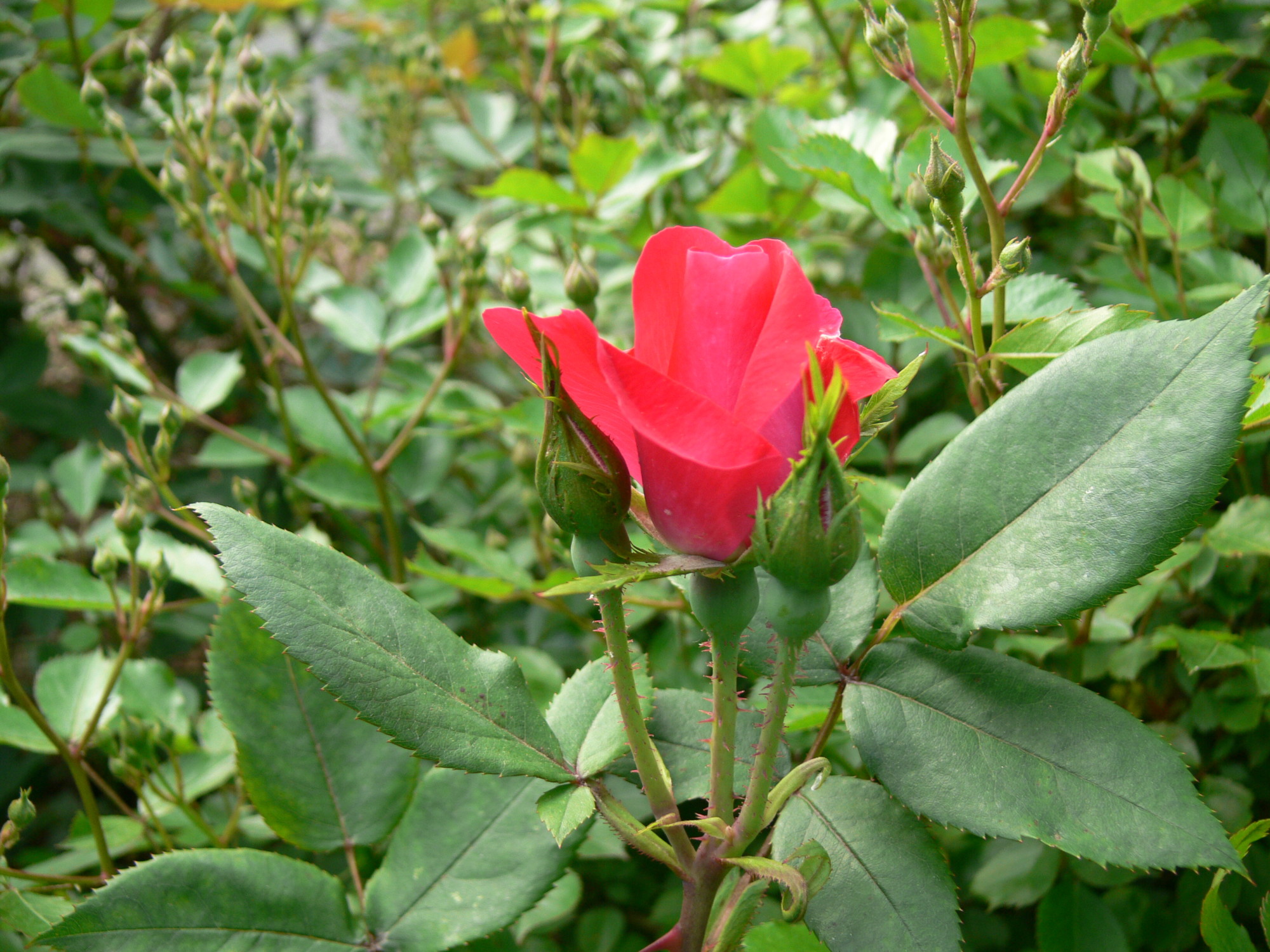
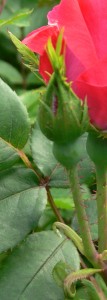
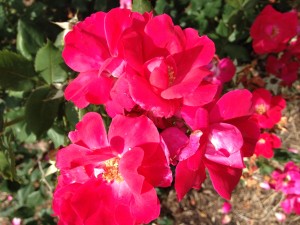
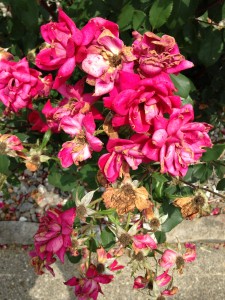
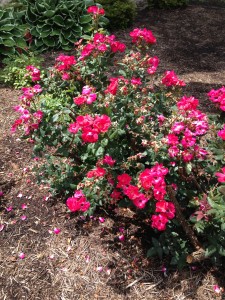
Recent Comments